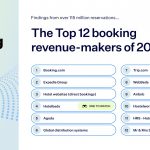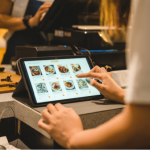
It’s great to see sustainability in our industry as a recurring theme in my inbox at the moment and most recently, in the latest Covid – 19 safe way of communication, through webinars.
In a recent webinar under the leadership of two senior lecturers from reputable universities, many smart people provided their input to a round table meeting. This produced lots of ideas and many suggestions, but really nothing new came out of it when reading the summary of the webinar.
However, one point of the report that struck a chord with me was the sentiment that anything that has a serious impact on our environment, and caused by the hospitality industry, needs to start with a response and action from the consumer.
“There exists a significant gap in what consumers truly understand about sustainability. Educating consumers can help shape preferences for sustainability and drive demand. This will help operators to implement measures that are having a real impact on the environment”.
While the webinar was attended by an all American audience and was really focused on the way Americans operate in the hospitality industry, with every suggestion that was provided, there followed a financial assessment and the question of who would ultimately pay for everything.
So, it was really all about the money and truly little about the environment and sustainability, which seems to me is a pretext to anything that has to do with the subject.
Hotels routinely conduct a SWOT analysis to identify ways to be ahead of the competition and what makes their particular property stand out from the rest. There are all kind of gimmicks used in marketing, from fine-dine restaurants with a Michelin star chef’s name on it, to spa and fitness centres and super deluxe health clubs, to rooms that had every conceivable hi-tech feature to limousine service and so on…
Fast forward to the 21st century and it seems obvious that, if given the right information, consumers could link sustainability to their booking habits and choose to book a particular property because of its sustainability initiatives. Operators clearly need to sell this as one of their USP’s as research has shown that people are actually interested in saving the environment if given the opportunity.
In today’s hospitality industry (almost) anything can be made possible with money, judging by the way hotels are built and fitted out, yet very little attention seems to be given to the environmental impact of each. Strict controls and legislation in all jurisdictions are needed to ensure that hotels are designed and built in a sustainable manner, from the materials used to build it, to the eventual operation of the hotel.
Sadly, sustainability is still a foreign word to many and judging by the plastics clogging our rivers and seas it is far from being addressed, despite the overwhelming scientific evidence of the harm caused.
Education must start with the young, but we must also ensure that the message gets through to older people who are often slow to change their way of thinking. Unfettered capitalism, where money and profit are the goals to the exception of all else, must be reined in or we will have no planet left for future generations.
Whilst it is not my place to comment on the ‘conclusions’ of the webinar, I think that the discussion is certainly of some value, but we are quickly moving to the point where we must act, and act quickly, rather than just talk.
In these most challenging of times, the Covid pandemic has reframed the outlook and focus of most societies. Let us now reflect on what action can be taken in our industry to support and drive sustainable initiatives, as further delay by owners, brands, operators and customers is becoming irreversible and the consequences unthinkable.
About the Author

Karl Faux is a veteran Hotelier and Managing Partner with Elite Search – a leading hospitality recruitment firm.
For more information about Karl and Elite Search visit http://www.elitesearch.com.au and The Elite Hotelier http://www.elitehotelier.net






























